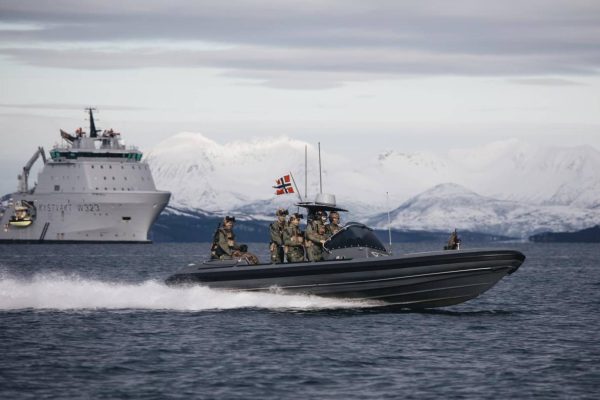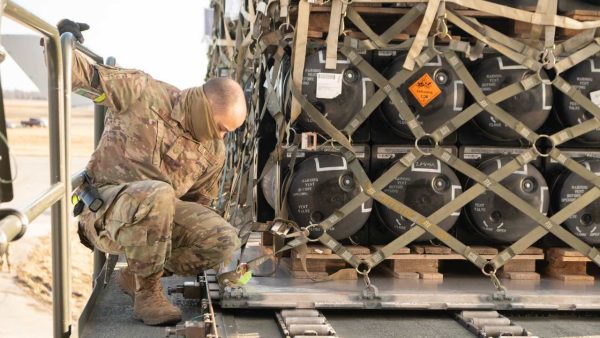Spring is dawning. Beleaguered Ukrainian defenders will get some of the munitions they need. Battered Ukrainian cities should get more air defenses. The US political system has finally, six months late, produced the result that most voters, and most lawmakers, wanted: a big aid package for Ukraine, likely to pass into law this week.
Admittedly, democracy is necessarily untidy. It is hard to imagine political deadlock and point-scoring in the Duma causing these sorts of headaches for Vladimir Putin. Russia has huge domestic problems. They do not distract decision-makers. Nor can one imagine the Kremlin squabbling with its allies about burden-sharing. In Russia, only one thing counts: what the boss says. Ukrainians are fighting and dying for the right to make the choices that Americans have just been exercising: the freedom to make mistakes and then fix them.
But those mistakes are still dangerous and costly. The US political system is badly damaged by polarization and misinformation. The discussion in Congress was not a sober evaluation of competing priorities amid debt-spewing overstretch. It was plagued by posturing, nonsense, and worse. The Biden administration has made bad errors too, chiefly in deterring itself from providing the kind of military assistance that would shorten the war. The resulting dithering and deadlock were of a kind not witnessed since the 1930s. They have permanently dented allied confidence in American trustworthiness, an asset built up over decades. And all that is before the added uncertainty surrounding Donald Trump’s possible return to power.
Europe has failed too. True, it has done a lot (energy, refugees, aid). But not enough. Its size and wealth allow it to do far more. Decisions did not match the lofty rhetoric. Had European allies ramped up munitions production right at the start of the war, for example, Ukraine would not now be short of shells, guns, and other vital arms. Americans are right to feel cross about their European allies’ deficiencies, in Ukraine and on other issues.
The Putin regime has been the beneficiary. While the West procrastinated and prevaricated, Russia successfully switched to a war economy. The Kremlin has dodged sanctions. It has consolidated its grip on power. It has built new international ties, with North Korea and China. Its generals have learned from their initially disastrous military mistakes and have developed new tactics, such as the dumb but effective “glide bombs” that are now pounding Ukrainian defenses.
Conversely, Ukraine paid the price for the mistakes made by others. Many of its best fighters died unnecessarily, lacking the weapons and equipment they needed. Future offensives will be hampered by a lack of soldiers. Being humbly grateful to unreliable friends frays the nerves.
In the past two years, Ukrainian bravery bought the West time. Time to wake up. Time to make plans, and to make hard decisions. Sadly, much of that time was wasted.
The political breakthrough in Washington, DC has averted defeat and made victory imaginable again. What happens next depends on whether Americans and Europeans respond by learning the lessons of failure, or by doubling down on their mistakes. Will the NATO summit in Washington this summer, for example, agree on Ukraine’s path to membership? Will the alliance members put flesh on the bones of the defense plans agreed in Vilnius? Will they provide Ukraine with long-range precision strike weapons that can disable not just Russia’s offensive, but its defenses? Will the allies now seize Russia’s foreign assets? Will they stop doing business with Russia? Will they start stating their war goals clearly? In short: are we serious now? On that question hangs not only Ukraine’s fate but the world’s.
Europe’s Edge is CEPA’s online journal covering critical topics on the foreign policy docket across Europe and North America. All opinions are those of the author and do not necessarily represent the position or views of the institutions they represent or the Center for European Policy Analysis.





